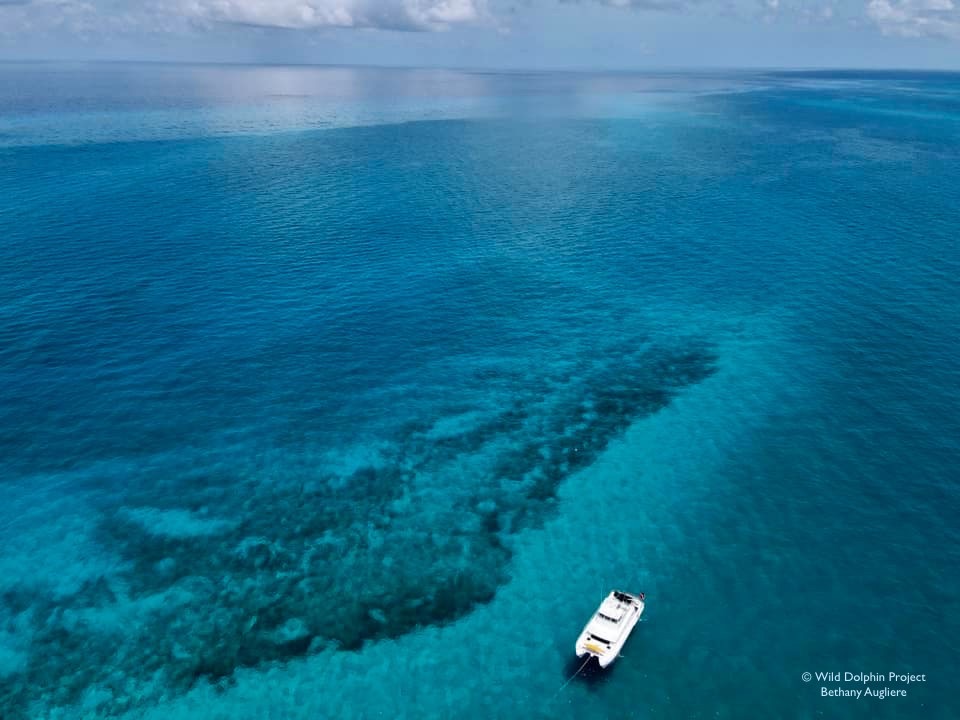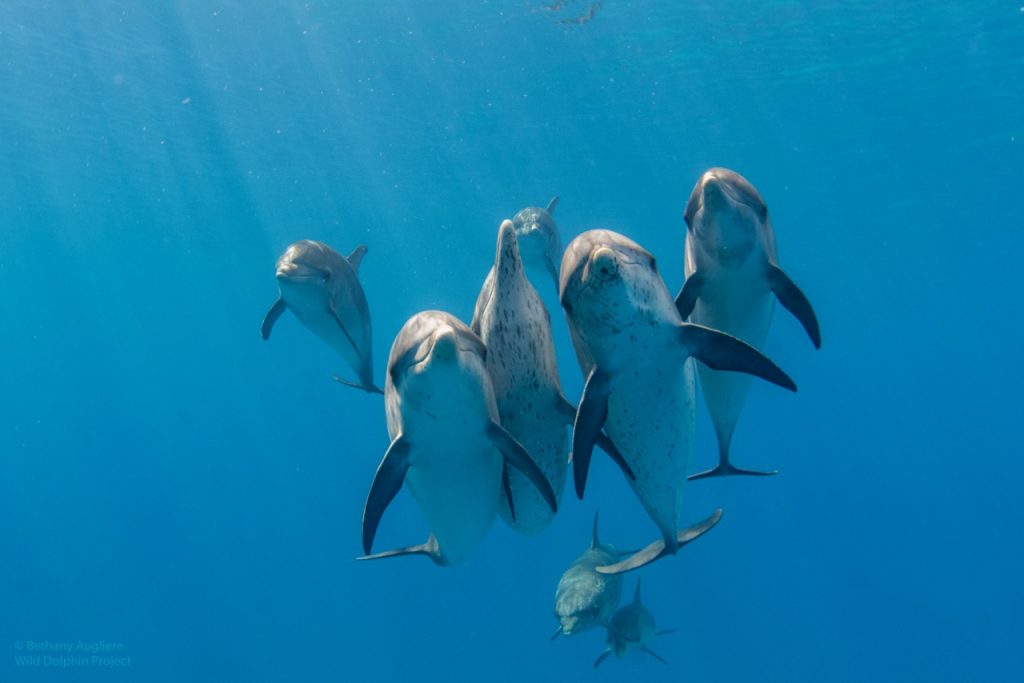
Aerial view of the Bahamas. (Photo by Bethany Augliere).
A natural social experiment has been taking place in Bahamian waters, and we’ve been there to witness it.
As it turns out, dolphins can make friends with strangers, according to our new research published in the journal Marine Mammal Science.

A group of juveniles including resident Bimini individuals, and Grand Bahama Island immigrants. (Photo by Bethany Augliere)
Exodus
In 2013, about 50% of the Atlantic spotted dolphins who had been living off Grand Bahama Island for more than 30 years moved south 100 miles, off the coast of Bimini. But, another group of resident dolphins already lived on this bank. What would happen next, we wondered? Would the two groups fight and mate, or remain separate? So, we decided to monitor both field sites, develop a catalog of the resident Bimini animals, and observe what happened. “Such a large-scale immigration is very rare, and we were excited to see what happened in this highly social species,” said Cindy Elliser, Ph.D., lead author, research director of Pacific Mammal Research, and WDP research associate.
From 2013 to 2020, our field researchers recorded 206 total dolphin encounters off Bimini and collected data that included individuals present and behaviors, such as fighting, playing, mating, feeding or traveling. Sometimes, groups were just the resident Bimini animals, other times, just the immigrants from Grand Bahama — and sometimes, the groups were mixed.
Results
Using SOCPROG, a software that analyzes animal social structure using individual identifications, we found that while the communities are integrating, there are still strong bonds within the original communities, said Cindy. Initially there was little interaction and two distinct social clusters delineated by residency status, though the number of interactions has increased. “Although this isn’t necessarily surprising — you won’t just leave the good friends you have had over many years — it is an interesting mixture of old and new relationships that is shaping the social structure and showing that both new and old relationships can be maintained and create a new, different community,” she added.
One of the most interesting things to WDP research assistant and co-author Cassie Volker-Rusche, is that a mixed alliance formed between older males of each community — Lhasa, Lord and Drogo — from 2015-2017. “The social bond of an alliance is strong, and the new alliance we observed was between older males. Two of the males were Bimini residents (Lord and Drogo, two adults) and one was an immigrant (Lhasa, a sub-adult),” she said. “It wouldn’t have been as big of a shock if the mixed alliance consisted of younger males.”
Looking Ahead
The dolphins from Grand Bahama originally left, likely due to a collapse in the food web from environmental changes. With habitat loss and warming oceans, populations will have to adapt to survive. “The future of different communities or populations may depend on how they are able to withstand these types of large scale changes,” said Cindy.
“The good thing, at least for our group, is that they are now able to socially integrate and seem to have been accepted by the resident group of Bimini spotted dolphins,” said Cassie.
This is truly a unique study showing the full integration of a displaced spotted dolphin community in the northern Bahamas with a local one in Bimini. “After watching their gradual integration, this paper describes their full integration over 7 years, males and females, young and old. Only long term field work and a dedicated research crew of the Wild Dolphin Project can illuminate such complex behavior,” said Denise Herzing, Ph.D., founder and director of the WDP. “ It shows us the importance of long- term research, especially now that climate change is impacting ocean habitats.”
